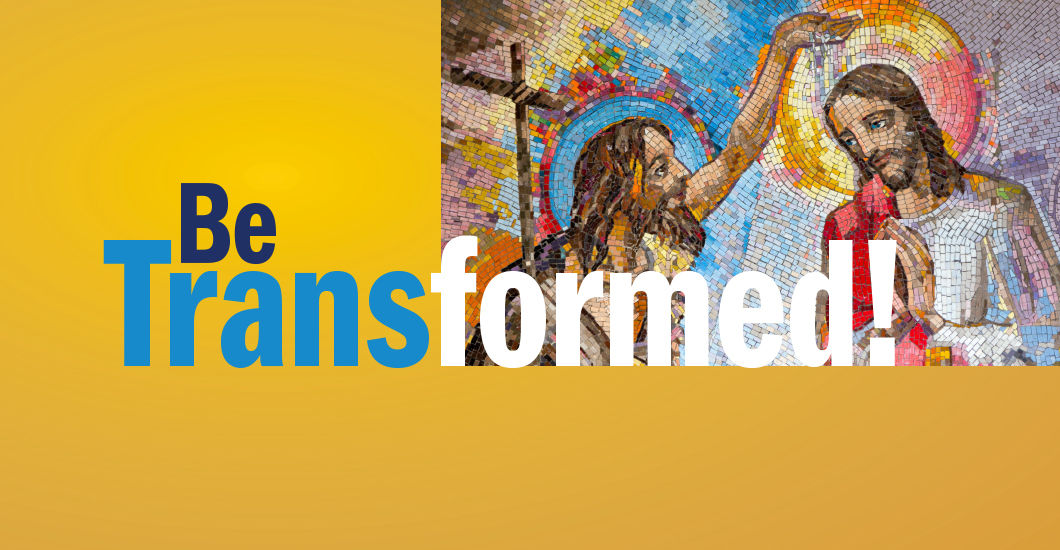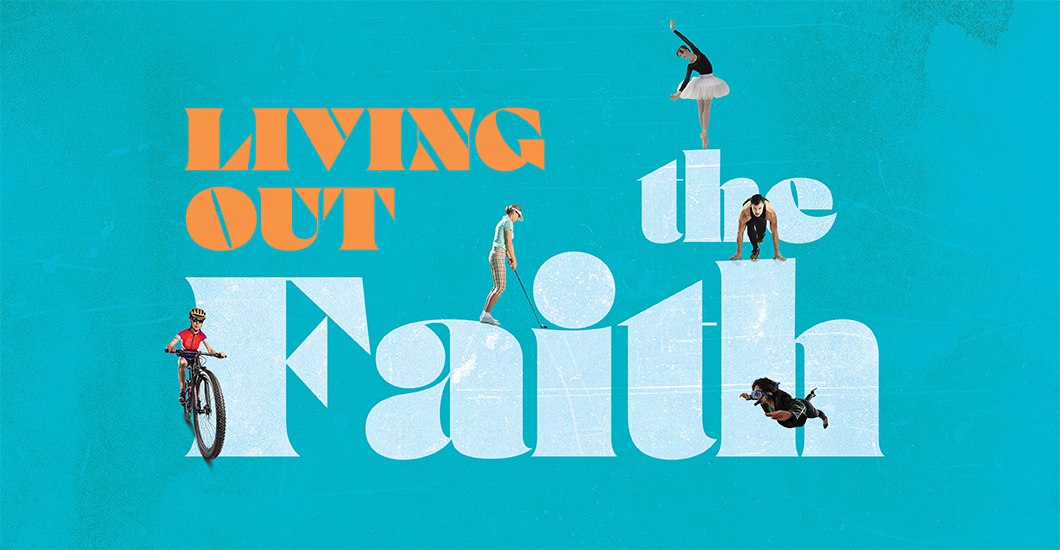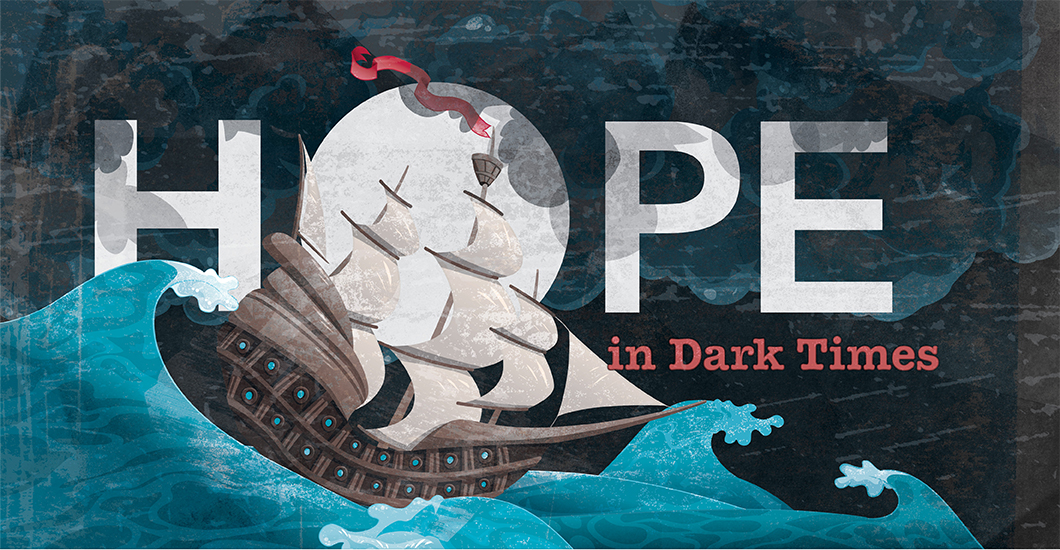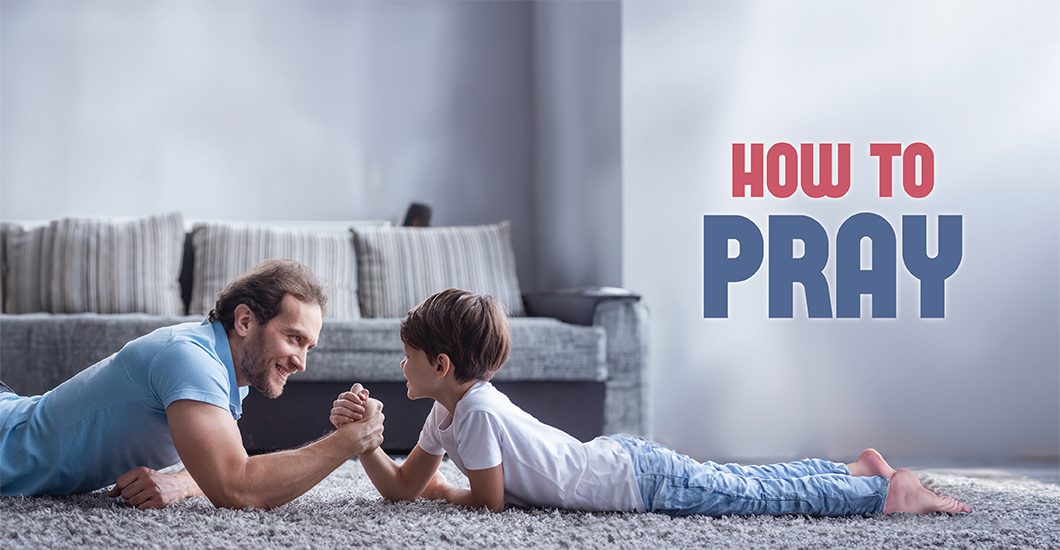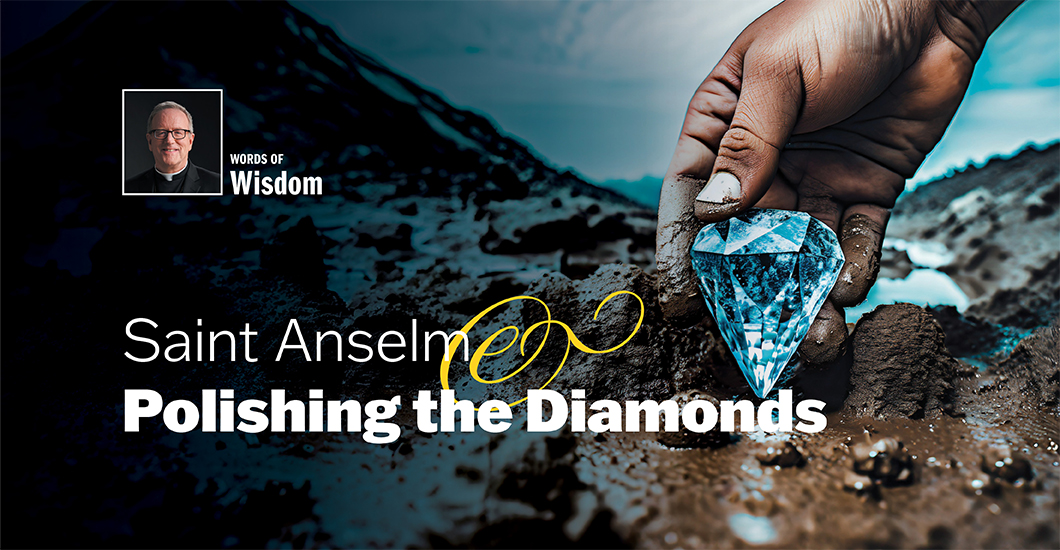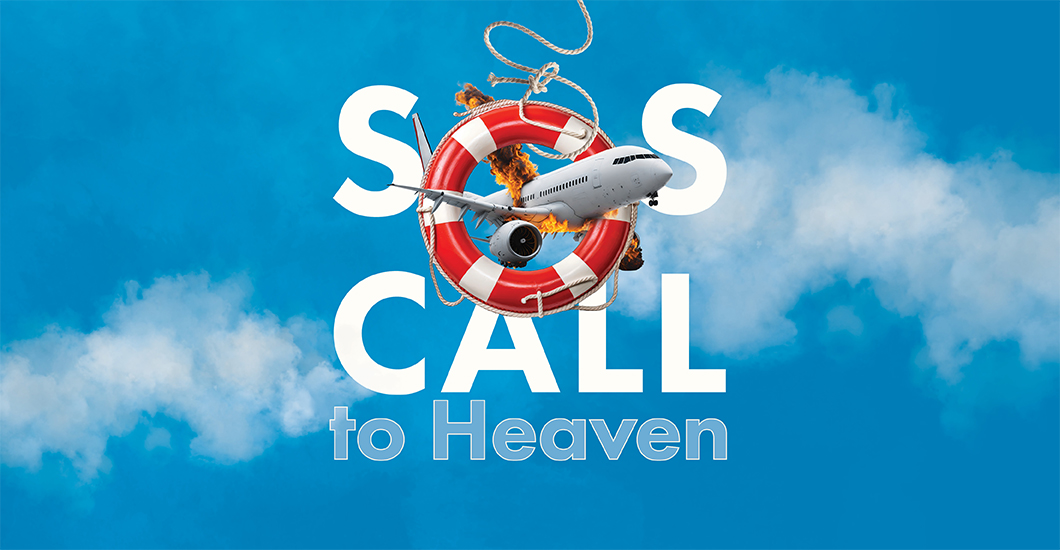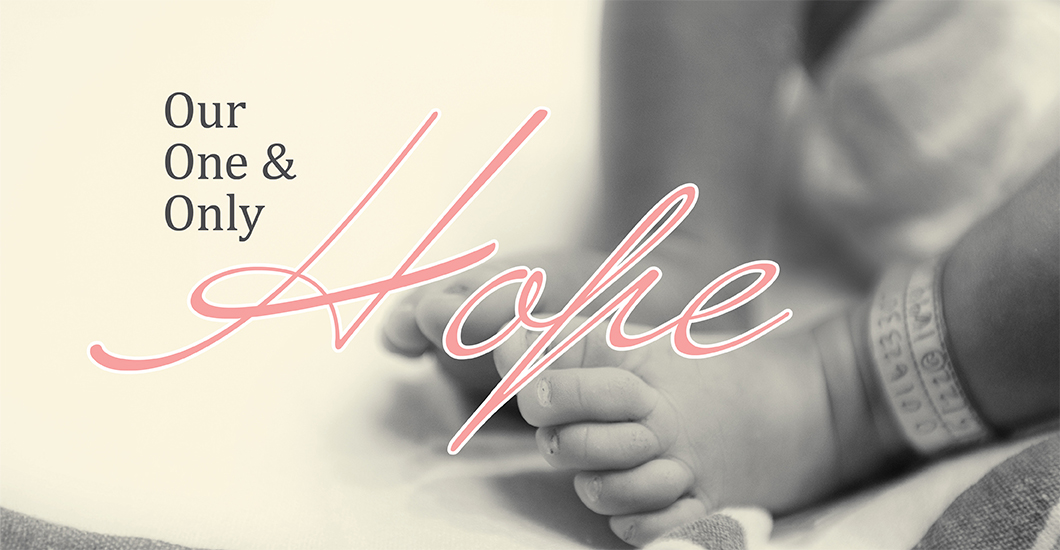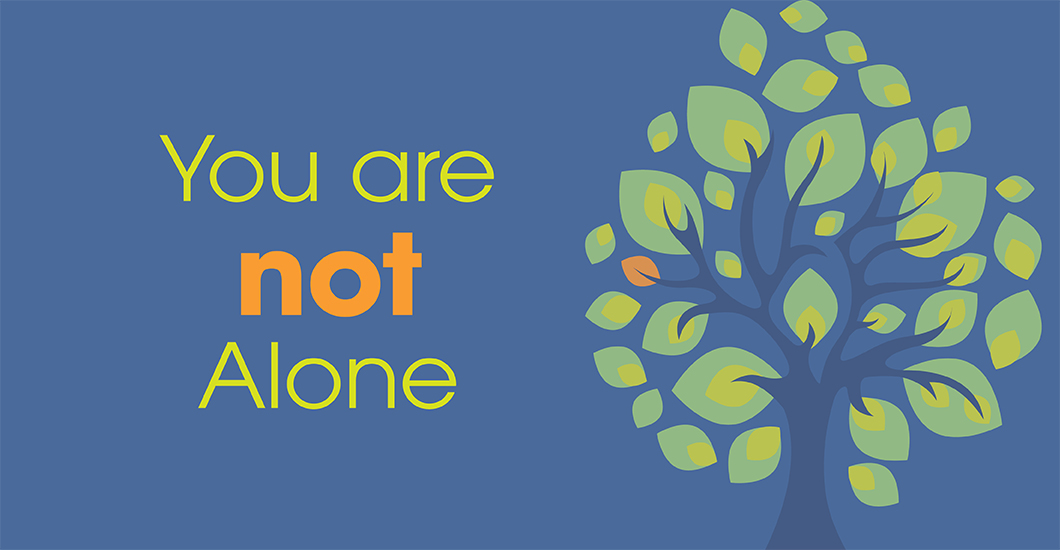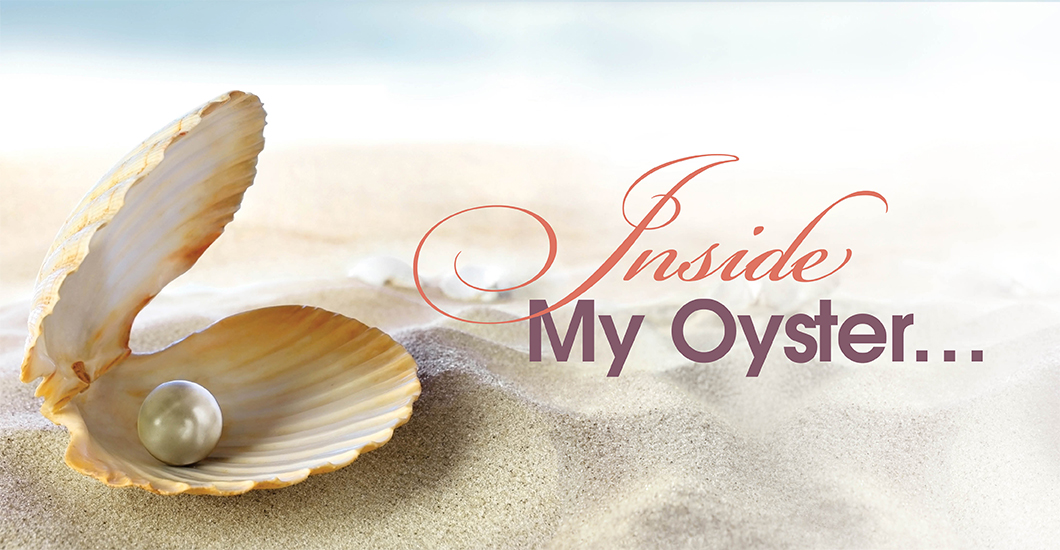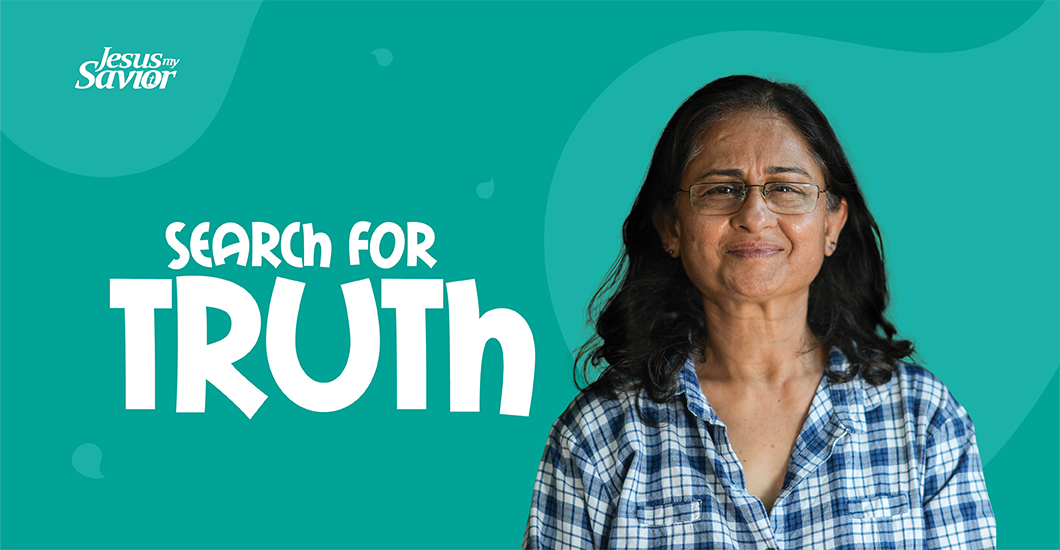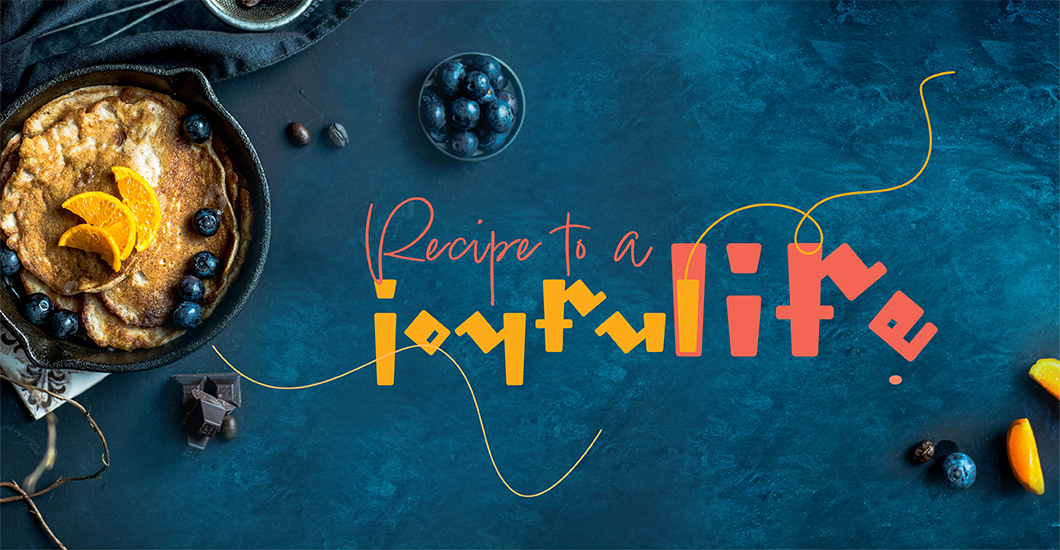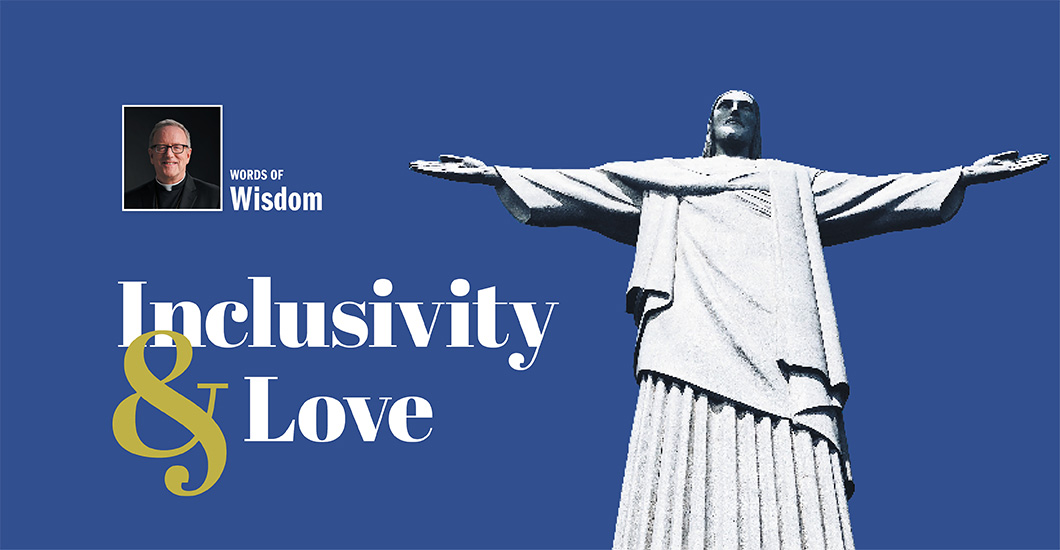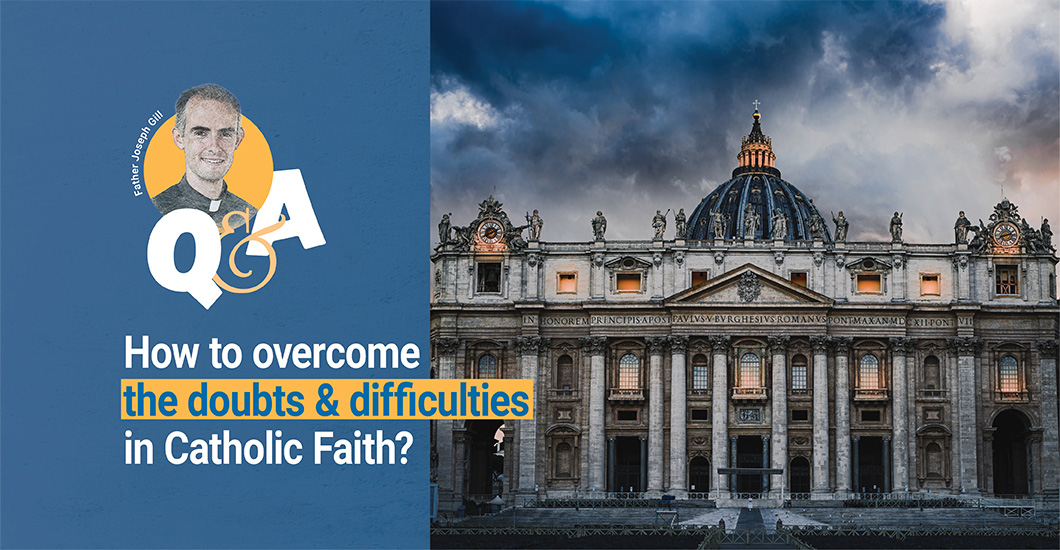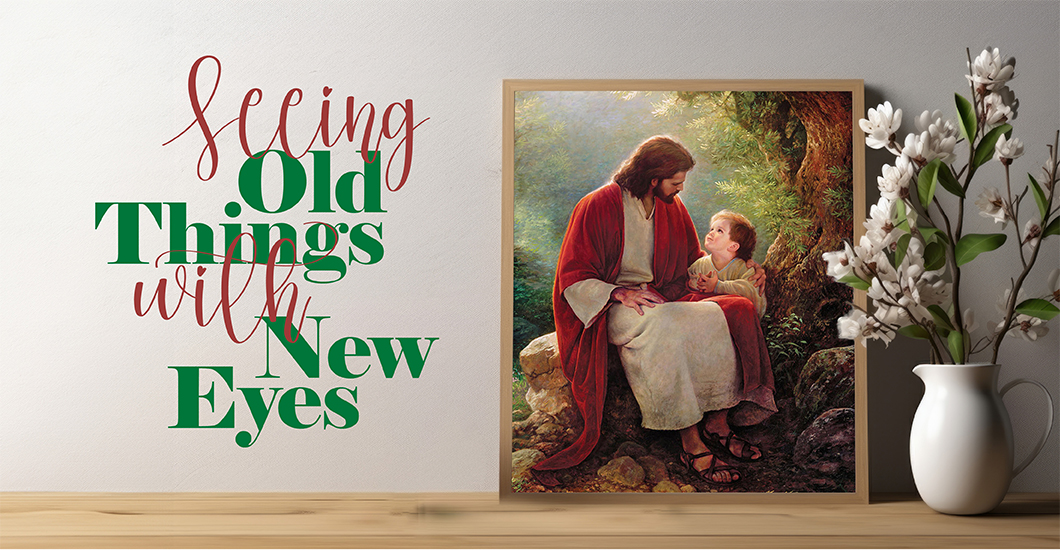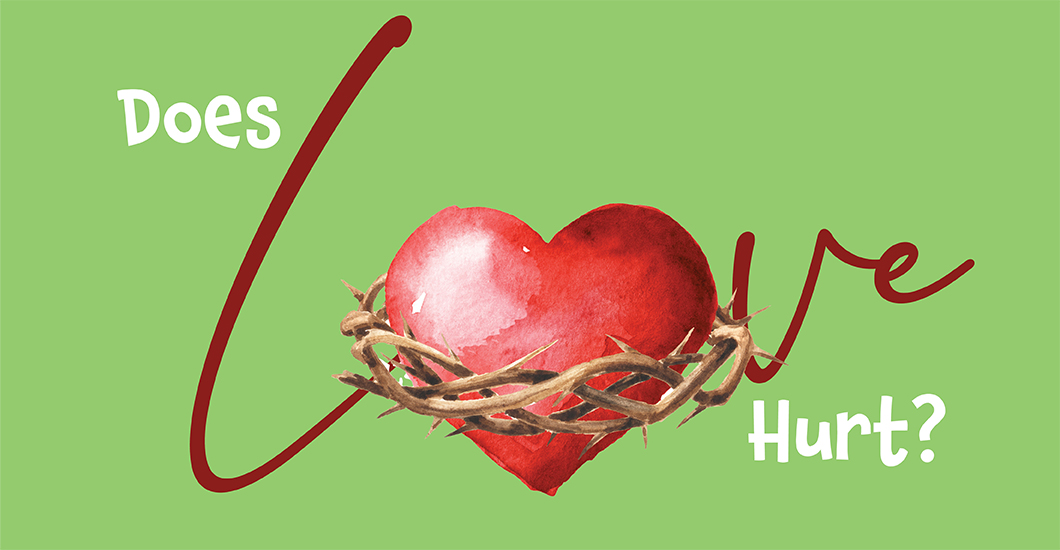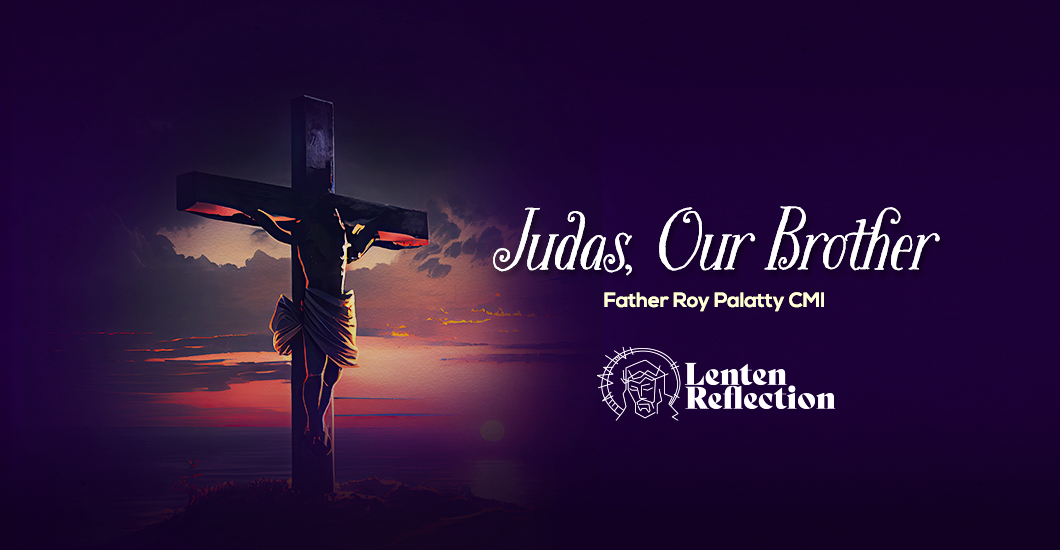Home/Evangelize/Article
Trending Articles
Be Transformed!
Have You Been Formed in Christ?
By virtue of our baptism we are called to be missionary disciples. The risen Christ commissioned His followers to carry out His mission: “Go, therefore, and make disciples of all nations, baptizing them in the name of the Father, and of the Son, and of the Holy Spirit” (Matthew 28:19). To do that, we need to be empowered, formed in Christ. What does that mean?
A good place to start is John 15: “I am the true vine, and my Father is the vine grower. He takes away every branch in me that does not bear fruit, and everyone that does He prunes so that it bears more fruit” (John 15:1-2). To be transformed, we need to be pruned by prayer and suffering. While prayer is necessary to participate in the divine life, it is suffering that can break down boundaries separating us from God. At certain points in life—such as during profound loss, rejection or failure—we lose control. Sooner or later, we all find ourselves in a place of pain.
At these moments, the Lord is with you in your pain. He has suffered it all and He loves and sustains you in being, every moment of your existence. Collapsing into His arms, uniting yourself with Him, you can do the impossible. If you have been betrayed, rejected or harmed, you will be able to forgive through His grace.
Forgiveness is such a key component for transformation. When we do not forgive, we stay stuck in the painful experience. Our relationships with God, others and ourselves are stifled. When you allow Christ to take over, forgiveness happens and the pain is released. It almost happens in spite of you. It happens when you say “Yes” to God’s will, just as our Blessed Mother did at the Annunciation: “I am the handmaid of the Lord. Let it be done according to Your Word” (Luke 1:38).
Have You Fallen in Love With Jesus?
Ironically, for some Catholics, this invitation seems strange. Many Catholics have a hard time even saying the name Jesus, let alone saying “I love Jesus” because it seems so Protestant or evangelical. You are made in the image and likeness of God. He is love, so you are made to love and be loved by God. As a beloved child of God, how can you be afraid of God, whom Jesus invites us to call Abba or Daddy? That is why Jesus says further along in John 15, “I no longer call you slaves, I call you friends.” This is the friendship model of genuine religion.
As Saint Catherine of Genoa said, “My deepest me is God.” A thousand years prior to Saint Catherine, Saint Athanasius, who did so much to fight against Arianism and contribute to the Nicene Creed, said “The Son of God became Man so that man could become God.” To participate in this reality is transformation. That is why Christian ministry re-grafts the true self into the experience of the Triune God. That is why suffering is not the worst thing that can happen to you, because it seems it is the most effective way to die to the false self.
The cross leads to resurrection. That is the Paschal Mystery, which we are called to live every day. What happens to Christ Jesus is meant to happen to us, because we are members of His mystical body, the Church. Saint Ignatius of Antioch put the necessity of suffering in this way:
As the Body of Christ, the Church, we are meant to go through the same process of transformation that is brought about by suffering. The important thing is to find God in the midst of your afflictions. Once you can find God in all things, you become indestructible because God is working in and through you.

Deacon Jim McFadden ministers at the Saint John the Baptist Catholic Church in Folsom, California. He serves in adult faith formation, baptismal preparation, spiritual direction, and prison ministry.
Related Articles
We all wrestle with God at one point or another, but when do we really attain peace? Recently, a struggling friend told me: “I do not even know what to pray for.” She wanted to pray but was growing weary of asking for something that was not coming. I immediately thought of Saint Peter Julian Eymard’s Eucharistic Way of Prayer. He invites us to model our prayer time after the four ends of the Mass: Adoration, Thanksgiving, Atonement, and Petition. A Better Way Prayer is more than asking, yet there are times when our needs and worries about our loved ones are so pressing that we do nothing but ask, ask, plead, and then ask some more. We might say: “Jesus, I leave this in your hands,” but 30 seconds later, we grab it right out of His hands to explain why we need it again. We worry, fret, and lose sleep. We don’t stop asking long enough to hear what God might be trying to whisper to our weary hearts. We go around like this for a while, and God lets us. He waits for us to wear ourselves out, to realize that we are not asking Him to help us, but we are trying to tell Him how we think He needs to help us. When we grow tired of wrestling and finally surrender, we learn a better way to pray. In his letter to the Philippians, Saint Paul instructs us on how we should approach our petitions to God: “Have no anxiety at all, but in everything, by prayer and petition, with thanksgiving, make your requests known to God. Then the peace of God that surpasses all understanding will guard your hearts and minds in Christ Jesus.” (4:6-7) Combat the Lies Why do we worry? Why do we get anxious? Because, like Saint Peter, who stopped looking at Jesus and began to sink (Matthew 14:22-33), we too lose sight of the Truth and choose to listen to the lies. At the root of every anxious thought lies a big lie—that God will not take care of me, that whatever problem worries me now is bigger than God, that God will abandon me and forget me…that I don’t have a loving Father after all. How do we combat these lies? With the TRUTH. “We must simplify the work of our mind by a simple and calm view of God’s truths,” reminds St. Peter Julian Eymard. What is the truth? I like Saint Mother Teresa’s answer: “Humility is truth.” The Catechism tells us that “humility is the foundation of prayer.” Prayer is raising our hearts and minds to God. It is a conversation, a relationship. I can’t be in a relationship with someone I do not know. When we begin our prayer with humility, we acknowledge the truth of Who God is and of who we are. We recognize that, on our own, we are nothing but sin and misery but that God has made us his children and that in Him, we can do all things (Philippians 4:13). It is that humility, that truth, that brings us to first adoration, then thanksgiving, then repentance, and finally to petition. It is the natural progression of one who is completely dependent on God. So when we don’t know what to say to God, let us bless Him and praise His name. Let us think of all the blessings and thank Him for all He has done for us. This will help us trust that this same God, who has always been with us, is still here today and is always for us through good times and difficult times.
By: Ivonne J. Hernandez
MoreThere is a regrettable interpretation of the Cross that has, unfortunately, infected the minds of many Christians. This is the view that the bloody sacrifice of the Son on the cross was “satisfying” to the Father, an appeasement of a God infinitely angry at sinful humanity. In this reading, the crucified Jesus is like a child hurled into the fiery mouth of a pagan divinity in order to assuage its wrath. But what ultimately refutes this twisted theology is the well-known passage from John’s Gospel: “God so loved the world, that he sent his only Son, that all who believe in him might have eternal life.”(3:16) John reveals that it is not out of anger or vengeance or in a desire for retribution that the Father sends the Son, but precisely out of love. God the Father is not some pathetic divinity whose bruised personal honor needs to be restored; rather, God is a parent who burns with compassion for His children who have wandered into danger. Does the Father hate sinners? No, but he hates sin. Does God harbor indignation at the unjust? No, but God despises injustice. Thus, God sends his Son, not gleefully to see him suffer, but compassionately to set things right. Saint Anselm, the great medieval theologian who is often unfairly blamed for the cruel theology of satisfaction, was eminently clear on this score. We sinners are like diamonds that have fallen into the muck. Made in the image of God, we have soiled ourselves through violence and hatred. God, claimed Anselm, could have simply pronounced a word of forgiveness from heaven, but this would not have solved the problem. It would not have restored the diamonds to their original brilliance. Instead, in his passion to reestablish the beauty of creation, God came down into the muck of sin and death, brought the diamonds up, and then polished them off. In so doing, of course, God had to get dirty. This sinking into the dirt—this divine solidarity with the lost—is the “sacrifice” which the Son makes to the infinite pleasure of the Father. It is the sacrifice expressive, not of anger or vengeance, but of compassion. Jesus said that any disciple of His must be willing to take up his cross and follow the Master. If God is self-forgetting love even to the point of death, then we must be such love. If God is willing to break open his own heart, then we must be willing to break open our hearts for others. The cross, in short, must become the very structure of the Christian life.
By: Bishop Robert Barron
MoreI am still in awe of Reverend Sebastian’s account of a miraculous escape from deadly danger. Surely you would be too, as I share it here in his own words. It was the coolest autumn night of October 1987, nearly 3 AM, and I had an hour left before boarding my flight to London. I decided to head to the airport lounge and grab a cup of hot coffee, which helped me shake off my sleepiness. I had taken some medication for a slight fever, but the effect was already wearing off. So, I took another one, and as I boarded the flight, I requested the air hostess, who introduced herself as Anne, for a free row in the middle so that I could get some rest during the long flight. My priestly collar must have touched her because when the seatbelt sign was turned off, Anne approached me and led me three rows back to where four seats were unoccupied. I then arranged the seats like a small couch and settled in. Disturbing News My comfortable slumber was broken by the erratic movements of the aircraft. My eyes shot open; the cabin was dimly lit, and most passengers were either asleep or glued to the screens in front of them. I couldn't help but notice the swift movements of the cabin crew as they hurried along the narrow walkways between the rows of seats. Assuming that someone was ill and needing assistance, I asked Anne, who was passing by my seat, what was happening. "It's just turbulence, Father. Everything is under control," she replied before quickly moving forward. However, her panicked eyes suggested otherwise. Unable to sleep, I walked towards the back of the plane to request a cup of tea. A crew member ordered me to return to my seat but promised to bring me the tea later. I sensed that something was amiss. As I patiently waited for my tea, a male crew member approached me. "Father Sebastian, there is a fire on one of the engines, and we haven't been able to contain it yet. We have a full tank of fuel, and we've been flying for almost two hours. If the fire reaches the fuel tank, the plane could explode at any time," he paused before looking me directly in the eyes. My body froze with shock. "The captain has a special request—please pray for all 298 souls on board and for the fire to be extinguished. Both captains know that we have a priest on board and have requested that I convey this message to you," he finished. Taking his hands in mine, I replied: "Please tell the captains to remain courageous, for Jesus and Mother Mary will protect us from this dangerous situation, just like how Jesus saved His disciples from the stormy sea. There is nothing to worry about, and the Holy Spirit will take control of the situation from this point forward. They will be guided wisely by Him." I heard a weary voice in front of me asking if the flight was going to explode. It was Sophie, a woman in her late years whom I had met on the plane earlier. She had overheard some of our conversation and had become hysterical. Crew members warned her not to make a scene; she calmed down a bit and sat next to me, confessing her sins to me 30,000 feet high. Holding On However, I had great faith in Mother Mary, who had helped me overcome similar situations before. I took my rosary and began to pray, closing my eyes and reciting it with utmost devotion. Mid-flight, I was informed that the captain was trying to make an emergency landing in a non-busy airport and that we needed to hold on for another seven minutes. Eventually, as the situation was still not under control, the captain informed the passengers to prepare themselves for an emergency landing. John, the crew member who had spoken to me earlier, informed me that the fire had reached gate 6, leaving only one more gate till the engine. I silently kept on praying for the safety of everyone on the flight. As the situation continued without improvement, I closed my eyes and continued praying, finding strength and courage in my faith. When I opened my eyes, the plane had landed safely at the airport, and the passengers were applauding. Relief at Last! “My dear friends, this is Rodrigo, your captain from the deck!” He paused for a moment and then continued. “We were in an extremely dangerous situation in the past hours, and we are good now! A special thanks to the Almighty God and Father Sebastian. He was praying for all of us and gave all of us great strength and courage to overcome this situation and…” he paused again, “we did!” John and Anne walked with me as we were greeted by the crew and dignitaries at the airport terminal. I was told that a replacement aircraft would arrive soon and that all passengers would be transferred to the new plane in an hour. After the harrowing experience on the flight, I couldn’t help but reflect on the power of prayer and the importance of trusting God in any situation. I remembered the words from Mark 4:35-41, where Jesus calmed a storm on the sea and asked his disciples: "Why are you so afraid? Have you still no faith?" As we boarded the new flight, I felt a renewed sense of gratitude for the miraculous escape and a stronger faith in God's protection. ***** Father Sebastian has since shared his story with many people and encouraged them to put their trust in God during difficult times. He reminds them that with faith and prayer, they, too, can overcome any storm and find peace in the midst of chaos.
By: Shaju Chittilappilly
MoreEcstatic over the good news of a much-awaited pregnancy, their world turned upside down during the 12th-week routine ultrasound. Our first-born Mary Grace was growing up to be a beautiful child. Our family and friends had been actively praying for us to have another baby, so we were overjoyed to learn about the pregnancy! The genetic testing returned normal results, and we decided to keep the gender a lovely surprise. When I went for the routine 12th-week ultrasound, the technician showed me the side profile of the baby and then quickly turned the screen away from me. They took my daughter out, and I immediately knew something was wrong. I thought: “Maybe the baby has some sort of heart problem or defect, but it is alright. God can fix anything, and we can have surgery.” But being a doctor, I prayed: “Please God, don’t let it be anencephaly.” Since I had had a glimpse of the ultrasound, I felt confident it would be something else. As the doctor came into the room, I asked: “Please tell me the baby is alive.” With a solemn face, she said: “Yes, the baby does have a heartbeat, but it doesn’t look good.” I started crying and called my husband on Facetime. It was what I feared the most—our baby has anencephaly, one of the severe defects a baby can have in utero where the skull does not develop appropriately—and the doctor told me the fetus wouldn’t live long. It was heartbreaking. This precious child that we had been waiting for so many years was not going to live! I thought about how excited my older daughter was. In our daily family prayer, she used to say: “Jesus, please let me have a baby brother or sister.” I kept saying in my mind: “Lord, you can heal, you can heal the baby.” My husband immediately came down. Trying hard to keep a straight face, I told my daughter that I was crying tears of joy. What else could I say? The doctor said we could terminate the pregnancy. I said, “Absolutely no way. I am going to carry the baby until he/she lives. If it’s going to be 40 weeks, it’s 40 weeks.” She did warn me that I would likely not make it that long, and in case the baby dies in the womb, there was the possibility of me getting a severe blood infection. I also needed frequent checkups as fluid build-up in my uterus could be very dangerous. I told her that I was ready to face anything. Thankfully, I wasn’t pressured further, even on the following visits. They knew that I had made my decision! Destined for Hope We came home and spent time praying and crying together. I called my sister, who was an OBGYN resident. She called a lot of friends, especially in Jesus Youth, and started a Zoom Novena that very night. We just said to our daughter that the baby has “a little bit of a booboo, but it’s okay.” We didn’t tell our parents or in-laws; my sister was to get married in a month, and we didn’t want the wedding to be affected. We also had this thought that they wouldn’t handle it with the same strength we felt. The first few days, many people talked to me, helping me trust in God’s providence and believe that He doesn’t do anything that’s not good for us. I felt immense peace. I thought about Mother Mary—the joy of receiving the good news at Annunciation and the later sorrow at knowing that He was going to die. We decided, that day, to open the card from the blood tests that revealed the gender because by then, we wanted to pray for the baby with a name. We named her Evangeline Hope, meaning ‘the bearer of good news’ because, for us, she still radiated the hope of Christ’s love and mercy. Not once did we consider aborting her because she was such good news, not only for us but for all our well-wishers—a child who would evangelize the world in many ways. I joined an Anencephaly Support group, which helped me immensely in my journey. I met many people, even atheists, who deeply regretted their decision to abort their babies. I was brought in contact with ladies who sewed angel gowns from donated wedding gowns and professional photographers who volunteered to document the birth through beautiful photos. We did a gender reveal at our sister’s wedding but still didn’t tell anyone that the baby was sick. We just wanted to honor and celebrate her little life. My sister and friends also organized a beautiful baby shower (more like a celebration of life), and instead of presents, everyone wrote letters to her for us to read after the delivery. Perpetual Adorer I carried her until the 37th week. Even after a complicated delivery, including a uterine wall rupture, Evangeline was not born alive. But somehow, I remember feeling a deep sense of Heavenly peace. She was welcomed with so much love, dignity, and honor. A priest and her Godparents were waiting to meet Evangeline. There in the hospital room, we had a beautiful time of prayer, praise, and worship. We had beautiful dresses for her. We read the letters that everybody wrote to her. We wanted to treat her with more dignity and honor than a ‘normal’ child. We cried because we missed her presence, and also because of joy as she was with Jesus now. In that hospital room, we were thinking, “Wow, I can’t wait to get to Heaven. Let’s do our best to be there with all the Saints.” Two days later, we had a ‘celebration of life’ for her with everybody wearing white. The Mass was celebrated by four priests, and we had three seminarians and a beautiful choir honoring our precious baby. Evangeline was buried in the Angels section for babies in the cemetery, which we still visit often. Although she isn’t here on earth, she is very much a part of our lives. I feel closer to Jesus because I see just how much God loves me and how He chose me to bear her. I feel honored. She is a perpetual adorer for our family to bring us to sainthood in a way no other situation could ever bring us to. It was sheer grace from God and full acceptance of His will that gave us the strength to go through this. When we accept God’s will, He showers the graces that we need to go through any given situation. All we have to do is abandon ourselves to His providence. Raising Saints Every unborn child is precious; healthy or sick, they are still gifts from God. We should open our hearts to love these children made in the image of Christ, who are in my view more precious than a “normal” child. Taking care of them is like taking care of the wounded Christ. It’s an honor to have a child with disabilities or special needs because caring for them will help us reach a deeper state of sanctity than accomplishing anything else in life. If we can see these sick unborn children as gifts—pure souls—it wouldn’t even feel like a burden. You will be raising within you, a Saint who will be seated beside all the angels and Saints. Our youngest baby boy Gabriel was born last October. As we awaited him, we used to pray that even if he is diagnosed with something, we would still have the grace to receive him with open hearts and arms. Thanks be to God, it was His will that Gabriel be born a beautiful healthy baby; and an added thanks to his sister’s intercession from heaven too. All life is a precious gift, and we are not the authors of life. We must always remember that God gives, and God takes. Blessed be the name of the Lord!
By: Dr. Hima Pius
MoreIn times of trouble, have you ever thought ‘if only I had help at hand,’ not fully knowing that you do really have a personal cohort to help you out? My daughter’s been asking me why I don’t look like the typical Pole if I am 100% Polish. I never had a good answer until this week, when I learned that some of my ancestors are Goral highlanders. Goral highlanders live in the mountains along the southern border of Poland. They are known for their tenacity, love of freedom, and distinct dress, culture, and music. At this moment, a particular Goral folk song keeps playing over and over in my heart, so much so that I shared with my husband that it is, in fact, calling me back to my home country. Learning that I have Goral ancestry has indeed made my heart soar! The Search for Roots I do believe that there is some desire within each of us to get in touch with our roots. That explains the many genealogy sites and DNA-testing businesses that have popped up recently. Why is that? Perhaps it stems from a need to know that we are part of something greater than ourselves. We long for meaning and connection with those who have gone before us. Discovering our ancestry shows we’re part of a much deeper story. Not only that, but knowing our ancestral roots gives us a sense of identity and solidarity. We all came from somewhere, we belong somewhere, and we are on a journey together. Reflecting on this made me realize how important it is to discover our spiritual heritage, not just our physical one. After all, we humans are body and soul, flesh and spirit. We would greatly benefit from getting to know the Saints who’ve gone before us. Not only should we learn their stories, but we should also get acquainted with them. Finding Connection I have to admit, I haven’t always been very good at the ask-for-the-intercession-of-a-saint practice. This is certainly a new addition to my prayer routine. What woke me up to this reality was this advice from Saint Philip Neri: “The best medicine against spiritual dryness is to place ourselves like beggars in the presence of God and the Saints. And to go like a beggar from one to another and to ask for spiritual alms with the same insistence as a poor man on the street would ask for alms.” The first step is to get to know who the Saints are. There are plenty of good resources online. Another way is to read the Bible. There are powerful intercessors in both the Old and New Testaments, and you may relate to one more than the other. Plus, there are countless books on the Saints and their writings. Pray for guidance, and God will lead you to your personal cohort of intercessors. For instance, I have asked Saint David the King for help with my music ministry. Saint Joseph is my go-to when interceding for my husband and for job discernment. I ask for help from Saint John Paul II, Saint Peter, and Saint Pius X when I feel called to pray for the Church. I pray for moms through the intercession of Saint Anne and Saint Monica. When praying for vocations, I sometimes call on Saint Therese and Saint Padre Pio. The list goes on. Blessed Carlo Acutis is my go-to for tech problems. Saint Jacinta and Saint Francisco teach me about prayer and how to offer up sacrifices better. Saint John the Evangelist helps me grow in contemplation. And I would be negligent to not mention that I often ask for the intercession of my grandparents. They prayed for me while they were on earth, and I know they are praying for me in eternal life. But my all-time favorite intercessor has always been our dearly beloved Blessed Mother. Just a Prayer Away Who we spend time with matters. It shapes us into who we become. There truly is a “cloud of witnesses” surrounding us that we are connected to in a real way (Hebrews 12:1). Let us strive to get to know them better. We can send up simple, heart-felt prayers like, “Saint ____, I would like to get to know you better. Please help me.” We are not meant to do-it-alone in this faith journey. We are being saved as a people group, as the Body of Christ. By staying connected to the Saints, we find both a compass that provides direction and concrete help to travel safely to our Heavenly homeland. May the Holy Spirit help us get in touch with our spiritual roots so that we can grow into Saints and spend eternity as one glorious family of God!
By: Denise Jasek
MoreThey say that pearls are formed around an intrusion, an unwanted foreign object that finds its way into its deeply protected shell. Once a foreign object enters the oyster shell, it secretes layers of the same luminous substance that is used to create the innermost part of its own shell. It continues to do so in concentric layers, eventually forming a shiny round pearl. Oysters are not much to look at, and producing a pearl is not an oyster’s ultimate purpose. Yet, in the course of survival, as a device of self-protection, the oyster builds itself around an unexpected intrusion to bring forth beauty. Amid the peace of a smooth-going life, when unwanted intrusions enter my heart and soul and threaten to eat me from within, does the oyster give me a lesson worth trying out? When failures, insurmountable barriers, any and every burden that was not mine in the first place end up within me by chance or by choice, can I secrete around it a thin layer of my innermost being? I have found that if I try hard enough to point myself to The Giver of Eternal Love, my innermost being will be slowly filled with His being. As I gaze at the Eucharist for endless hours with nothing but gratitude, as I receive The Host into my soul with the greatest desire, as I sit down at His feet and listen with trust, that self-giving Love will slowly fill my soul. Henceforth, with every little piece of disturbance that enters and threatens to disturb my peace, this Love within will cover it, one layer at a time. Eventually, precious pearls of saintly luminosity will be pried forth by The Expert Hand and adorn many lives with it.
By: Maria Teres Sebastian
MoreFrom being a faithful Muslim praying to Allah three times a day, fasting, almsgiving, and doing Namaz, to being baptized in the Pope’s Private Chapel, Munira’s journey has twists and turns that might surprise you! My image of Allah was of a stern master who would punish my slightest error. If I wanted anything, I had to buy Allah’s favor with fasting and prayer. I always had this fear that if I were to do anything wrong, I would be punished. The First Seed A cousin of mine had a near-death experience, and he told me that he experienced a vision of plunging through a dark tunnel, at the end of which he saw a bright light and two people standing there—Jesus and Mary. I was confused; shouldn’t he have seen the prophet Mohammed or Imam Ali? Since he felt so sure that it was Jesus and Mary, we asked our imam for an explanation. He replied that Isa (Jesus) is also a great prophet, so when we die, he comes to escort our souls. His answer didn’t satisfy me, but it began my search for the truth about Jesus. The Search Despite having lots of Christian friends, I didn’t know where to start. They invited me to a Novena to Our Lady of Perpetual Succour, and I started attending the novenas regularly, listening carefully to the homilies explaining the word of God. Although I didn’t understand much, I believe that it was Mary who understood and eventually led me to the truth. In a series of dreams through which the Lord would speak to me over the years, I saw a finger pointing out a man dressed as a shepherd while a voice called me by name, saying, “Munira, follow Him.” I knew the shepherd was Jesus, so I asked who was speaking. He replied: “He and I are one.” I wanted to follow Him, but I didn’t know how. Do You Believe in Angels? We had a friend whose daughter seemed to be possessed. They were so desperate that they even asked me for a solution. As a Muslim, I told her that we have these Babas they could go to. Two months later, I was astounded when I saw her again. Instead of a thin, puny ghost of a figure I had seen earlier, she had become a healthy, radiant, robust teenager. They told me that a priest, Father Rufus, had delivered her in the name of Jesus. After several refusals, when we finally accepted their invitation to join them at Mass with Father Rufus, he prayed over me and asked me to read a verse from the Bible; I felt such peace that there was no turning back. He spoke about The Man on the Cross—who died for Muslims, Hindus, and all mankind throughout the world. It awakened a deep desire to know more about Jesus, and I felt that God had sent him in answer to my prayer to know the Truth. When I came home, I opened the Bible for the first time and started reading it with interest. Father Rufus advised me to seek out a prayer group, but I didn’t know how, so I started praying to Jesus on my own. At one point, I was alternately reading the Bible and the Quran, and I asked Him: “Lord, what is the Truth? If you are the Truth, then give me the desire to only read the Bible.” From then on, I was led to open only the Bible. When a friend invited me to a prayer group, I initially said no, but she insisted, and the third time, I had to give in. The second time I went, I took my sister along. It turned out to be life-changing for both of us. When the preacher spoke, he said that he’d received a message, “There are two sisters here who have come searching for the Truth. Now their search has ended.” As we attended the weekly prayer meetings, I slowly started to understand The Word, and I realized that I had to do two things—forgive and repent. My family was intrigued when they noticed a visible change in me, so they started coming too. When my dad learned about the importance of the Rosary, he surprisingly suggested that we start praying it together at home. From then on, we, a Muslim family, would kneel down and pray the Rosary every day. No End to Wonders My growing love for Jesus prompted me to join a pilgrimage to the Holy Land. Before we went, a voice in a dream told me that although I held fear and anger deep within me, it would soon be released. When I shared this dream with my sister, wondering what it could all mean, she advised me to ask the Holy Spirit. I was puzzled because I didn’t really know who the Holy Spirit was. That would soon change in an amazing way. When we visited the Church of Saint Peter (where he had that dream showing him all the animals that God now permitted them to eat (Acts 10:11-16)), the Church doors were closed because we were late. Father Rufus rang the bell, but nobody answered. After about 20 minutes, he said, “Let us just pray outside the Church,” but I suddenly felt a voice within me saying: “Munira, you go ring the bell.” With the permission of Father Rufus, I rang the bell. Within seconds, those huge doors opened. The priest had been sitting right beside them, but he only heard the bell when I rang it. Father Rufus exclaimed: “The Gentiles will receive the Holy Spirit.” I was the Gentile! In Jerusalem, we visited the Upper Room where the Last Supper and the Descent of the Holy Spirit had taken place. As we were praising God, we heard a roar of thunder, a wind blew into the room, and I was blessed with the gift of tongues. I couldn’t believe it! He baptized me in the Holy Spirit in the same place where Mother Mary and the apostles received the Holy Spirit. Even our Jewish tour guide was astonished. He fell to his knees and prayed with us. The Sprout Keeps Growing When I returned home, I was longing to be baptized, but my mom said: “See Munira, we follow Jesus, we believe in Jesus, we love Jesus, but conversion...I don’t think we should do it. You know there will be many repercussions from our community.” But there was a deep desire within me to receive the Lord, especially after a dream in which He asked me to attend the Eucharist every day. I remember imploring the Lord like the Canaanite woman: “You fed her the crumbs from Your table, treat me like her and make it possible for me to attend the Eucharist.” Shortly afterward, while I was walking with my dad, we unexpectedly arrived at a church where the Eucharistic celebration was just beginning. After attending the Mass, my dad said: “Let us come here every day.” I feel that my road to baptism started there. The Unexpected Gift My sister and I decided to join the prayer group on a trip to Rome and Medjugorje. Sister Hazel, who was organizing it, casually asked me if I would like to get baptized in Rome. I wanted a quiet baptism, but the Lord had other plans. She spoke to the Bishop, who got us a five-minute appointment with a Cardinal that lasted two and a half hours; the Cardinal said he would take care of all arrangements to be baptized in Rome. So we were baptized in the Pope’s Private Chapel by the Cardinal. I took on the name Fatima and my sister took on the name Maria. We joyfully celebrated our baptismal lunch with many cardinals, priests, and religious over there. I just felt that right through it all, the Lord was telling us: “O taste and see that the Lord is good; happy are those who take refuge in him” (Psalm 34:8). Soon came the Cross of Calvary. Our family experienced a financial crisis that people in our community blamed on our conversion to Christianity. Astonishingly, the rest of my family went the other way. Instead of turning their backs on us and our faith, they also asked for baptism. Amid adversity and opposition, they found strength and courage, and hope in Jesus. Dad expressed it well, “There is no Christianity without a Cross.” Today, we continue to encourage each other in our faith and share it with others whenever we have the opportunity. When I was speaking to my aunt about my conversion experience, she asked me why I addressed God as “Father.” God, for her, is Allah. I told her that I call Him Father because He has invited me to be His beloved child. I rejoice to have a loving relationship with Him Who loves me so much that He sent His Son to wash me clean from all my sins and reveal the promise of eternal life. After I shared my remarkable experiences, I asked her if she would still follow Allah if she were in my place. She had no answer.
By: Munira Millwala
MoreA winning combination is cooking within. Do you want a taste? In 1953, Bishop Fulton Sheen wrote, “The vast majority of the people in Western civilizations are engaged in the task of getting.” These words still hold so much truth even today. Let’s be honest. These days, there is a whole subculture of influencers whose lavish lifestyles are funded by a successful swaying of their followers to purchase particular products that they advocate. Influence, consumerism, and greed abound. We desire the newest model of smartphones even before they hit the shelves. We want to get our hands on the trendiest items whilst they are still in vogue. We know that given the ever-changing trend pattern, it would not be too long before these same products are advertised through alternate media labeled ‘In Excellent Used Condition’ or, worse, ‘Brand New With Tags.’ “The massing of wealth,” observes Sheen, “has a peculiar effect on the soul; it intensifies the desire of getting.” In other words, the more we get, the more we want to get. This endless quest for gratification through wealth drains us and causes fatigue in our very being, whether we realize it or not. So then, if amassing wealth is essentially an unquenchable desire, how do we find happiness, self-worth, and contentment in the consumeristic world that we live in? Grit and Gratitude Saint Paul directs us, “Rejoice always, pray without ceasing, give thanks in all circumstances; for this is the will of God in Christ Jesus for you” (1 Thessalonians 5: 16-18). Most of us would admit that this is easier said than done. But does that mean it is impossible? Despite living a life of peril and strife, Saint Paul, one of the forefathers of Christianity, led by example. Was he imprisoned for promoting Christianity? Absolutely. Was his life in danger? Constantly. Was he shipwrecked, stoned, and ridiculed? Without a doubt. And despite all of these—and more—challenges, Saint Paul regularly exhorted Christians, “Do not worry about anything, but in everything by prayer and supplication with thanksgiving let your requests be made known to God. And the peace of God, which surpasses all understanding, will guard your hearts and your minds in Christ Jesus” (Philippians 4:6-7). In fact, gratitude and giving due thanks and praise to God was a recurring and, dare I say, constant theme of his correspondence to the Churches. From Rome to Corinth, Ephesus to Philippi, the early Christians were encouraged to give thanks—to be grateful—in all circumstances, not just the good ones. Then, as now, this encouragement is both timely and confronting. However, being grateful in all circumstances requires prayer, effort, and perseverance. Grateful and Giving If we were to follow Saint Paul’s example and examine what we have with gratitude, what would that look like? Would we be grateful to have: a roof over our heads, money to pay the bills and feed the family, and enough to spend on little luxuries along the way? Would we be grateful for the family and friends we have around us, the vocation, and the talents that God has blessed us with? Or would we still desire to blindly follow what’s trending and fritter away our money, energy, and happiness on things we don’t need and appreciate? Or could it possibly result in a more ordered and prudent approach to what we have and what we spend our money on? Of course, the measure of our success in practicing gratitude is offset by the energy we put into it. Like any spiritual endeavor, we are not going to become proficient at gratitude overnight. It is going to take time and effort. Slowly but surely, gratitude will color the way we see the world. In appreciating and being thankful for what we have and not chasing after more than we need, we are much better disposed to give to others rather than to receive ourselves. This combination of gratitude and giving is a winning combination. Once again, Bishop Fulton Sheen agrees, “The reason it is more blessed to give than to receive is because it helps to detach the soul from the material and the temporal in order to ally it with a spirit of altruism and charity which is the essence of religion. There is more happiness in rejoicing in the good of others than in rejoicing in our own good. The receiver rejoices in his good; the giver in the joy of others, and to such comes the peace nothing in the world can give.” Give gratitude a Go Expressing gratitude involves the growth mindset. To grow in gratitude is to grow in self-knowledge, knowledge of God, and His plan for us. In separating ourselves from the cyclic nature of amassing wealth and the futile pursuit of happiness, we open ourselves up to finding happiness where we are. We also ensure the right ordering of ourselves and our benefits as a result of God’s goodness. Like Saint Paul, we can recognize, “For from Him and through Him and to Him are all things. To Him be the glory forever. Amen.” (Romans 11:36). This attitude of gratitude—which rolls rhythmically and poetically off the tongue—also helps us to see the silver lining in things that do not always turn out the way that we want them to. And this is the most poignantly beautiful aspect of gratitude, the spiritual aspect. As Saint Augustine explains, “God is so good that in His hand, even evil brings about good. He would never have permitted evil to occur if He had not, thanks to His perfect goodness, been able to use it.”
By: Emily Shaw
MoreThe other night, I had the privilege of participating in one of the listening sessions for the continental phase of the Synodal process. The basis for our discussion was a lengthy document produced by the Vatican after it had compiled data and testimony from all over the Catholic world. As I have been studying and speaking about synodality, I very much enjoyed the exchange of views. But I found myself increasingly uneasy with two words that feature prominently in the document, and that dominated much of our discussion— namely, “inclusivity” and “welcoming.” Again and again, we hear that the Church must become a more inclusive and welcoming place for a variety of groups: women, LGBT+ people, the divorced and civilly remarried, etc. But I have yet to come across a precise definition of either term. What exactly would a welcoming and inclusive Church look like? Would it always reach out to everyone in a spirit of invitation? If so, the answer seems obviously to be yes. Would it always treat everyone, no matter their background, ethnicity, or sexuality, with respect and dignity? If so, again, the answer is yes. Would such a Church always listen with pastoral attention to the concerns of all? If so, affirmative. But would a Church exhibiting these qualities never pose a moral challenge to those who would seek entry? Would it ratify the behavior and lifestyle choices of anyone who presented him or herself for admission? Would it effectively abandon its own identity and structuring logic so as to accommodate any and all who come forward? I hope it is equally evident that the answer to all those questions is a resounding no. The ambiguity of the terms is a problem that could undermine much of the Synodal process. In order to adjudicate this matter, I would suggest that we look not so much to the environing culture of the present day but to Christ Jesus. His attitude of radical welcome is nowhere on clearer display than in his open-table fellowship, that is to say, his consistent practice—countercultural in the extreme—to eat and drink not only with the righteous but also with sinners, with Pharisees, tax collectors, and prostitutes. These meals of sacred fellowship Jesus even compared to the banquet of heaven. Throughout His public ministry, Jesus reached out to those considered unclean or wicked: the woman at the well, the man born blind, Zacchaeus, the woman caught in adultery, the thief crucified at his side, etc. So, there is no question that He was hospitable, gracious, and yes, welcoming to all. By the same token, this inclusivity of the Lord was unambiguously and consistently accompanied by his summons to conversion. Indeed, the first word out of Jesus’ mouth in his inaugural address in the Gospel of Mark is not “Welcome!” but rather “Repent!” To the woman caught in adultery, He said, “Go and sin no more”; after meeting the Lord, Zacchaeus promised to change his sinful ways and compensate lavishly for his misdeeds; in the presence of Jesus, the good thief acknowledged his own guilt; and the risen Christ compelled the chief of the Apostles, who had three times denied Him, three times to affirm his love. In a word, there is a remarkable balance in the pastoral outreach of Jesus between welcome and challenge, between outreach and a call to change. This is why I would characterize His approach not simply as “inclusive” or “welcoming” but rather as loving. Thomas Aquinas reminds us that to love is “to will the good of the other.” Accordingly, one who truly loves another reaches out in kindness, to be sure, but at the same time, he does not hesitate, when necessary, to correct, to warn, even to judge. My mentor, Francis Cardinal George was once asked why he disliked the sentiment behind the song “All Are Welcome.” He responded that it overlooked the simple fact that, though all are indeed welcome in the Church, it is “on Christ’s terms, not their own.” An overall concern that I have, very much related to the consistent use of the terms “welcoming” and “inclusivity,” is the trumping of doctrine, anthropology, and real theological argument by sentiment, or to put it a bit differently, the tendency to psychologize the matters under consideration. The Church doesn’t prohibit homosexual acts because it has an irrational fear of homosexuals, nor does it refuse communion to those in irregular marriage arrangements because it gets its kicks out of being exclusive; nor does it disallow women’s ordination because grumpy old men in power just can’t stand women. For each of these positions, it articulates arguments based on Scripture, philosophy, and the theological tradition, and each has been ratified by the authoritative teaching of bishops in communion with the pope. To throw all these settled teachings into question because they don’t correspond to the canons of our contemporary culture would be to place the Church into real crisis. And I sincerely do not believe that this shaking of the foundations is what Pope Francis had in mind when he called for a synod on synodality.
By: Bishop Robert Barron
MoreQ: I disagree with some of the teachings of the Catholic Church. Am I still a good Catholic if I don’t agree with everything? A: The Church is more than just a human institution—it is both human and divine. It does not have any authority on its own to teach anything at all. Rather, the role of the Church is to teach faithfully what Christ taught on earth: to authentically interpret the Scriptures and to hand on the Apostolic Tradition that has come down to us from the Apostles themselves. The word “Tradition” comes from the Latin word “traditio”, meaning “to hand over.” We make the distinction, however, between Tradition (with a Big T) and traditions (with a little t). Tradition (Big T) is the unchanging, everlasting teaching of the Church, which has its roots in the Apostles and Christ. Examples of this include the fact that only wheat bread and grape wine can be used for Holy Eucharist; only men can become priests; certain moral actions are always and everywhere wrong; etc. Little-t traditions are man-made traditions that are changeable, such as abstaining from meat on Fridays (this has changed in the course of the Church’s history), receiving Communion on the hand, etc. People of goodwill are allowed to have various opinions about pastoral practices, disciplines of the Church, and other traditions that are “little-t” traditions that came from human beings. However, when it comes to Apostolic Tradition (big-T), to be a good Catholic means that we must accept it as coming from Christ through the Apostles. Another distinction needs to be made, though: there is a difference between doubt and difficulty. A “difficulty” means that we struggle to understand why the Church teaches a specific thing, but a difficulty means that we accept it in humility and seek to find the answer. After all, faith is not blind! The medieval theologians had a phrase: Fides Quaerens Intellectum—Faith Seeking Understanding. We ought to ask questions and seek to understand the Faith we believe in! By contrast, a doubt says, “Because I don’t understand, I will not believe!” While difficulties stem from humility, doubt stems from pride—we think that we need to understand everything before we believe it. But let’s be honest—are any of us able to understand mysteries like the Trinity? Do we really think we are wiser than Saint Augustine, Saint Thomas Aquinas, and all of the Saints and Mystics of the Catholic Church? Do we think that the constant 2,000-year-old Tradition, which was handed down from the Apostles, is somehow in error? If we find a teaching that we grapple with, keep grappling—but do so with humility and recognize that our minds are limited and we often need to be taught! Seek, and you will find—read the Catechism or the Church Fathers, the Encyclicals of the Popes, or other solid Catholic materials. Seek out a holy priest to ask your questions. And never forget that everything the Church teaches is for your happiness! The Church’s teachings are not meant to make us miserable but rather to show us the way to genuine freedom and joy—which can only be found in a vibrant life of holiness in Jesus Christ!
By: Father Joseph Gill
MoreLatest Articles
When a terrible loss led Josh Blakesley into the light, music from his soul became a balm to many bleeding hearts. Growing up in the small town of Alexandria, Josh was a carefree child. He grew up listening to his Dad’s music; two elder sisters with a great music collection was a bonus that nurtured his musical taste. Without professional training or theoretical inputs, in an age with no internet and YouTube, Josh had what he would later call ‘a side entry’ into the world of music. Starting on the drums and simultaneously learning to sing, he was enamored by the likes of Don Henley and Phil Collins, following their legendary works through magazines and books. With his mother, though, Church was a non-negotiable matter. Thanks to her insistence, he went to Mass every Sunday. But he would leave God there and live the rest of his life on a totally different plane. Diving Deeper They met in Spanish class when he was 15, and unlike any other 15-year-old, she took him along to a prayer meeting. This was new and different from anything he had experienced before. Teenagers his age were coming together to worship the Lord. This worship experience was modern and engaging…with music, talks, and skits by people his age! He was intrigued, but he wouldn’t have kept coming back every week if Jenny hadn’t asked him to. Several months later, Jenny was hit by a drunk driver and killed in an accident. Her loss was a huge blow to the entire community. As he struggled with the grief of losing her, it triggered a realization that life here is finite, and there must be purpose in it, a reason that we are living. From that very moment, he began a journey, searching for answers to the questions that fascinated him…‘What is the reason for me? What is the purpose of what I’m doing right now? Why has God put me on this planet? What’s my role while I’m here?’ He started diving more into why we were here on this planet. In realizing that his gifts were from God, and in searching for a purpose in the use of these gifts, he realized that he wanted to give back to God and return the love. A Bolt of Realization He started playing music for Mass and getting involved in the liturgy. As he puts it: “There has been a faith part to my music and a music part to my faith as well. Those are still ingrained. I pray through music a lot”. And it is this experience of prayer that he tries to hand over to his brethren through writing and playing music. The “awesome and overwhelming” experience of leading people into worship and hearing them singing along makes him whisper so often: “The Lord is moving right now, and I don’t have to work.” Bridging the Gap Josh is now a full-time singer, songwriter, producer, music director, husband, and dad. Even while leading the music at Mass every Sunday, Josh knows that Mass can happen without music—what a musician does at Mass doesn’t bring Jesus any greater into the room; He is there regardless. What a musician can do is “elevate the worship of the faithful by bringing some extra beauty through music.” This indeed, is one of his life goals—to try and bridge that gap and bring quality music into the liturgy. But he doesn’t stop there; in addition to adding beauty to the Sacramental experience, he goes another mile to bring God to the people. Right from His Heart As a Catholic musician, Josh writes songs for the Mass and writes from the heart. Sometimes, when it comes out, it might not be out rightly Mass-material, but what comes out is still a tribute to God for the gift of music. He relates that his song Even in This was such an experience right from his heart. The Church community he was part of had just lost a teen, and seeing them go through the pain, the tragedy, and the devastation took him back to his own experience of losing a dear friend in his teenage years. Diving into the pain, he wrote that even in these darkest nights, God is with us. In the ‘valleys of pain’, in the ‘shattered, broken things’, in the ' hurt you cannot hide’ and the ‘fear you cannot fight’, he reassures his listeners that though you cannot see God, “You are not alone.” This is one message Josh wants to repeat to the world: “God is moving with you.”
By: Josh Blakesley
MoreA familiar picture, a routine job, but that day, something different caught her eye. On the corner of my bathroom vanity is an old photocopy of a drawing (original source long forgotten) in a clear, plastic frame. Years ago, one of my now adult sons had carefully framed it and set it on his dresser. It sat there until he grew up. When I re-homed, I transferred it to the corner of my bathroom vanity. On Saturdays, when I clean the bathrooms, I always lift the little frame and wipe the surfaces beneath it. Occasionally, I’ll swipe my cloth over the smooth sides of the frame to wash away any settled dust and invisible germs. But, like so many other familiar things, I rarely take notice of the image inside the old childish frame. One particular day, though, this picture caught me by surprise. I eagerly focused on the eyes of the two figures in the image—a child and Jesus. The expression on the little child’s face was one of loving adoration. The innocence of child-like wonder and unrestrained admiration resonated in his soft, penciled eyes. The child’s tender, upward gaze seemed not to notice the horror of the crown of thorns atop Christ’s head or the Cross crushing His right shoulder. In contrast, Jesus’s eyes peered down from beneath heavy lids and shadowed creases. The artist had managed to skilfully veil the depth of pain behind those eyes. Drawing Parallels I recalled a memory from my early years as a mother. I was big with baby number three. In the last days of pregnancy, I was attempting to soothe my aching body with a warm bath. I bounded my two young sons. They were full of energy and chatter as they moved around the tub and peppered me with questions. My privacy and physical discomfort were of no consequence to their boyish minds. I remembered the tears that rolled down my face as I tried, in vain, to get my sons to understand that I was hurting and in need of some space. But, they were simply little children who saw me as their ever-present mama, the one who kissed away boo-boos and always stood at the ready to hear their stories and meet their needs. They lacked understanding of the physical sacrifices that child-bearing demands. And I was too familiar to be seen by them as someone other than their strong, steadfast mother. I considered the parallels. Like my little boys, the pictured child saw Our Lord through his individual, human lens of experiences. He saw a loving Teacher, a faithful Friend, and a steadfast Guide. Christ obscured the intensity of His Passion—out of mercy and met the child’s gaze with tenderness and compassion. The Lord knew that the child was not ready to see the full measure of the suffering that his salvation had cost. Lost in the Darkness Our familiarity with things, people, and situations can make us blind to reality. We most often see through the clouded tunnel of old experiences and expectations. With so many stimuli competing for our attention, it is reasonable that we filter out the world around us. But, like the child in the picture and my own little ones, we tend to see what we want to see and ignore that which does not correspond with our perspectives. I believe that Jesus wants to heal our blindness. Like the blind man in the Bible who, on being touched by Jesus, said: “I see men, but they look like trees, walking” (Mark 8:22-26), most of us are not ready to see the ordinary with divine eyes immediately. Our eyes are still too accustomed to the darkness of sin, too attached to our self-reliance, too complacent in our worship, and too proud of our human endeavors. The Full Picture The price paid for our salvation on Calvary was not an easy price. It was sacrificial. Yet, like the child in the picture on my bathroom vanity, we focus only on Jesus’s tenderness and mercy. And because He is merciful, Jesus doesn’t rush; He allows us to come to a gradual maturity of faith. However, it is good to ask ourselves every once in a while if we sincerely render efforts towards spiritual maturity. Christ did not give His life so that we might remain in the fantasy world of continued blessings. He gave His life so that we might have eternal life, and we need to open our eyes to see that He bought it at the price of His blood. As we journey through Lent and especially Holy Week, we need to allow Christ to open our eyes little by little, surrender ourselves to His will, allow Him to remove our idols one by one, and strip away that which has become familiar in our lives so that we may begin to see the old blessings of worship, family, and holiness with new eyes of deep, abiding faith.
By: Tara K. E. Brelinsky
MoreI remember a time in my ministry when I had felt a fellow minister distancing himself from me for no apparent reason. It seemed like he was struggling, but he wouldn’t share it with me. One Lenten day, burdened by this thought, I stood in my office and cried out to the Lord in my heart: “Jesus, I feel so left out of this person’s life.” Immediately, I heard Jesus respond with these sad words: “I know how you feel. It happens to Me every day.” Wow! I felt my own heart pierced, and tears flooded my eyes. I knew these words were a treasure. I continued for months to unpack that grace. Since my Baptism in the Holy Spirit twenty years ago, I had considered myself to have a deep personal relationship with Jesus. But this Word from my precious Savior and Lord opened a whole new insight into Jesus’ Heart. “Yes, Jesus, so many people forget You, don’t they? And me too—how often am I going about my tasks, forgetting to bring my problems and thoughts to You? All the while, You wait for me to turn back to You, who looks on me with such love.” In my prayer, I kept processing those words. “I know better now how You feel when someone rejects You, accuses or blames You, or does not talk to You for days or even years.” I would more consciously take my own sorrows to Jesus and tell Him: “Jesus, my Beloved, You feel this same sadness that I am feeling. I offer my little hurt to console You for so many people, including myself, who fail to console You.” I saw in a new way my favorite image, Jesus with His Sacred Heart’s rays of love flowing out, lamenting to Saint Margaret Mary: “Look at My Heart that loves people so much—but receives so little love in return.” Truly, Jesus gives me little trials daily so I can have a tiny taste of what He endured for us. I will always remember that moment of agony that brought me closer to the amazing, tender, long-suffering love of our dear Lord Jesus.
By: Sister Jane M. Abeln SMIC
MoreFather Primo Mazzolari was one of the great public figures of mid-twentieth century Italy. His homily on Holy Thursday in 1958, a year before his death, which he titled “Our Brother Judas” is well-known. At the heart of the homily are the words of Jesus upon Judas’ arrival at the Garden of Gethsemane: “Friend, do what you have come for” (Matthew 26:50). “Friend” was what Jesus addressed him as at their last encounter. Even after his betrayal, Jesus expressed love, mercy, and even friendship towards this betrayer. This was an invitation to examine the inner life of Judas. We don’t know if even that tender word penetrated his heart. But we know one thing: Judas must have remembered that powerful and lovely word ‘friend’ at the moment when he hung himself on the tree. ‘O Judas, my friend…!’ Still, we are sure when Jesus prayed from the Cross, “Father, forgive them, for they know not what they do,” he certainly did not exclude Judas from those he prayed for. It is true that Jesus had predicted about Judas, “none of them was lost except the son of destruction” (John 17: 12). Another terrifying statement about Judas: “It would be better for that man if he had never been born” (Mark 14:21). But, as in many other instances, he had spoken from the perspective of time and not of eternity. The eternal destiny of a human being is an inviolable secret kept by God. “We may betray Christ’s friendship, but Christ will never betray us, his friends; even when we don’t deserve it, even when we turn against him. Even when we deny him, in his eyes and in his heart, we are always friends of the Lord…. Poor Judas. Our poor brother. The greatest sin is not to sell Christ; it is to despair” (Primo Mazzolari). We cannot pass a hasty judgment on him. The betrayal of Judas continues throughout history. Judas sold the Head, while his imitators continue to sell the Body, the members of the Body of Christ. Judas’ betrayal continues through the lives of each of us when we fail to confess our sins.
By: Father Roy Palatty CMI
More